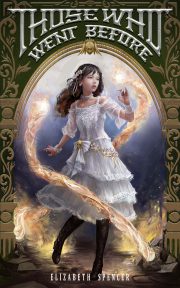Overcoming the Rejection Machine: Why a Positivity Read Should Be Part of Your Publishing Journey
By Shawn Proctor
Whether you enroll in a writing workshop or writer’s group, there is a premium placed on critique as the main path to improving your craft. Peer writers working on the same elements of character, plot, voice, and pacing are excellent partners for highlighting a story’s foibles and fumbles and offering suggestions to fix these oversights.
My writing group, the Middle Grade Narwhals, includes writers who are all working intently on publishing in different genres. (The Middle Grade Hub is a sprawling network of MG-focused writing groups.) My Narwhals are critique experts, always helping improve a story.
It’s an important part of a process writers know well. Draft. Critique. Revise. Polish.
The steps may repeat, but the hard work of developing an idea from a concept into a publishable, professional story remains fixed, regardless of whether you’re writing literary fiction or horror, creating picture books, or unleashing sprawling epics. It’s a joy to see a concept take shape as a draft. And it can be just as satisfying to refine that draft into a fully formed story.
If only that were where the process ended, but being a professional writer means actually attempting to publish your stories.
Life in the Machine
The publishing industry is a rejection machine. Your odds are grim that a story will break through to an acceptance from a magazine, agent, or publisher. One agent estimated on X, the platform formerly known as Twitter, that she requested to read full manuscripts of four percent of queries received, and of those, she offered to represent one percent. Similarly, an award-winning editor of a semi-professional fantasy magazine estimated that five percent of submissions were passed to an editor, and one percent of those were accepted.
Between the grind of submitting or querying and the constant self-reflection on writing deficiencies from critiques, writers, unfortunately, may lose perspective on their abilities until they are unsure which skills need “leveling up” and which are strengths. In the publication push, it’s easy to skip over the positive aspects cited in a critique and focus only on what’s broken. For me, focusing on what to fix on the path to publication led me far astray.
I had been confident in my sensory descriptions. That was before an agent, who had requested to read the full manuscript of my book (my fourth finished), passed on it after nearly a year of silence. I had never felt so close to breaking through and so broken from not succeeding. The agent rejected my book because it was good enough to like but not good enough to love. And as I reread my story, my confidence in every aspect of my writing evaporated.
After that agent’s rejection (just one of hundreds), I was hollow and became intensely critical of the very stories I had written with a smile on my face and a tear on my cheek. I used to hook readers with description, but I didn’t hook the agents. So maybe I couldn’t write description, and if I couldn’t write description, all of my favorite scene-writing aspects were suspect. Voice? Prose style? Dialogue? Average at best. But what could I do about it?
Positivity reads are not vague efforts to say “I like this” or “That was interesting.” They are as demanding as a critique, defining strengths in a writer’s prose and successes in the story as written. These are qualities to develop and thread throughout the piece. Just as there is no one absolute way to critique a story, there’s no perfect way to give a positivity read. But when done with care, I have seen firsthand how it can reignite inspiration and confidence.
Relearning to Play
My fellow Narwhals had broken the rejection machine and begun publishing their books. As my writing stalled, I invested energy in supporting them. I needed to find my center again before I could jump-start my own work.
So, when my group and a few others offered to look at my story for a positivity read, it was a relief. One reader pointed out fun exchanges between characters and how they illustrated relationships. Another noted how clearly they could see the beach because of my vivid images of the sand and reeds. Still another loved the unique magic system’s connection to my character’s theme.
As they cited what worked in my story, I remembered and connected with the joy I had when writing those parts of the book. I slowed down, my inner critic quieted, and I spent time rereading those scenes. And a funny thing happened.
While reliving the thrill of creation, I noticed places where those effective aspects could be tweaked and heightened even more. What if I added a stronger, more specific noun here? I thought. What if I put a small flourish of wonder into the magic when the characters first use it?
I wasn’t revising anymore; I was playing, the same way I had when I jotted down the original idea, when my story could have been about anything I wanted and the potential was as big as my imagination. I saw, as if for the first time, what worked in my story, not simply what was lacking. And a question formed in my mind: What if?
What if my humorous side character had another moment to show off his abilities? What if my main character had a special item that they would give up to illustrate maturation? What if, what if, what if…?
It was like someone released pressure from a valve and I was just a kid again, reading a story by one of my favorite authors. The same kid who dreamed of incredible adventures and characters he wished he knew. The one who loved words and the pictures they made.
And along the way, I discovered, yes, rejection is part of the publishing journey, but positivity and kindness should be part of that journey too. Because tapping into that original feeling can bring your story back to life.
 Shawn Proctor’s writing has been published in several literary journals and anthologies, including Crab Orchard Review, Flash Fiction Online, Podcastle, Galaxy’s Edge, and Daily Science Fiction.
Shawn Proctor’s writing has been published in several literary journals and anthologies, including Crab Orchard Review, Flash Fiction Online, Podcastle, Galaxy’s Edge, and Daily Science Fiction.
He was nominated for Best New American Voices and is a WYRM’s Gauntlet Champion.
His middle-grade fantasy novel was selected for the Write Mentor Summer Programme in 2020.
He earned an MFA in Creative Writing from Rosemont College and a BA in English with a Concentration in Professional Writing from Kutztown University. He is a member of The MGNarwhals, a writing group for aspiring middle grade authors, and the Codex Writing Group for professional SFF writers.


